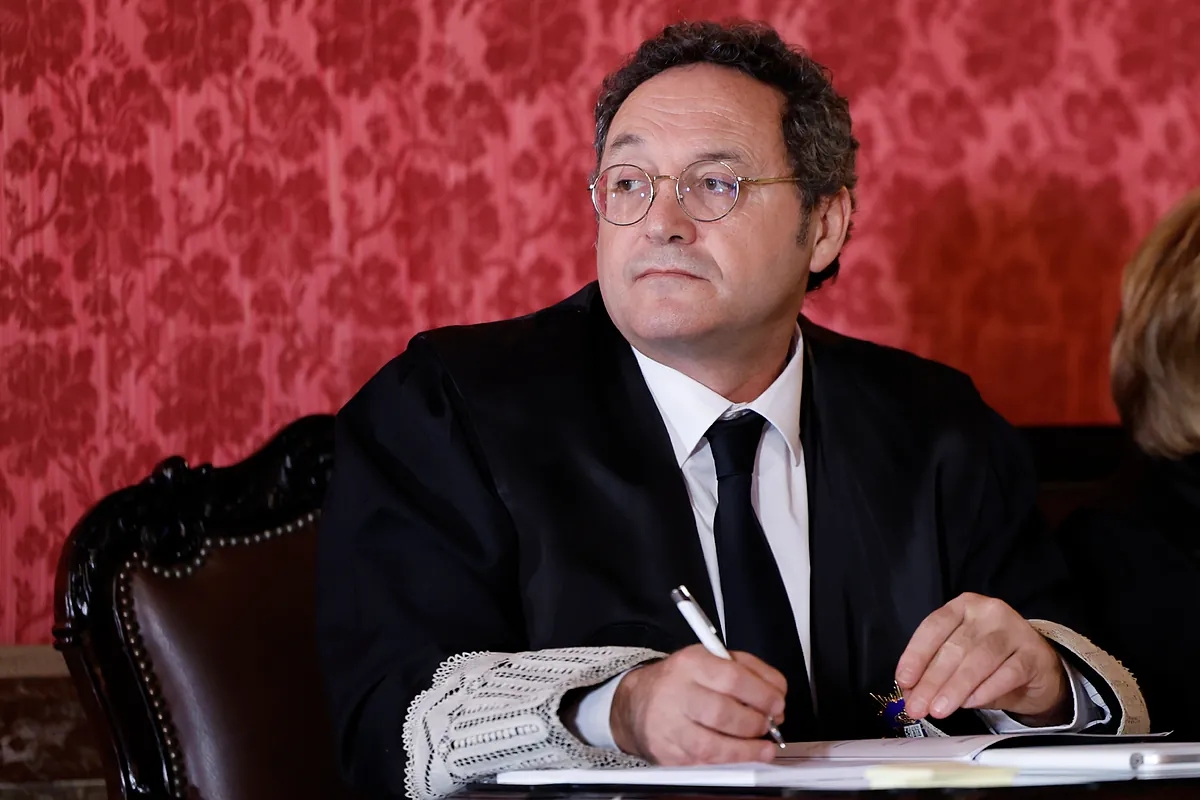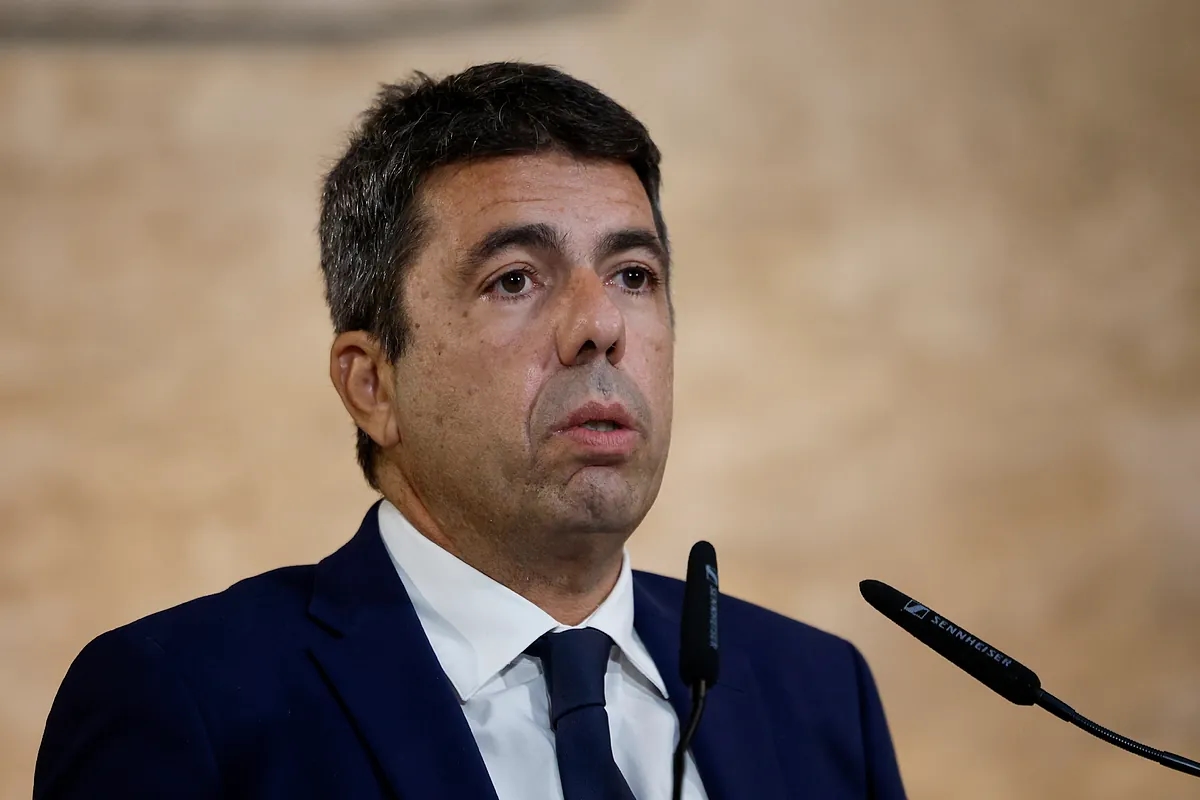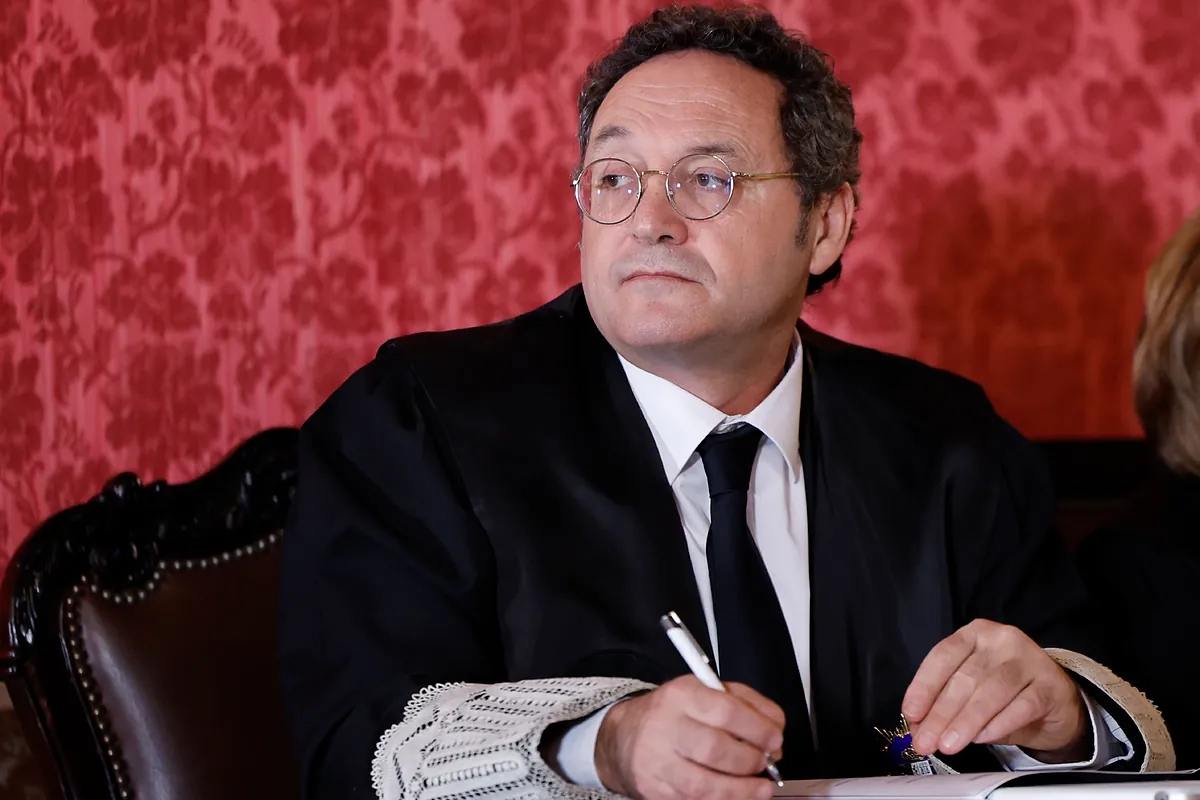The political motive gains strength at the start of the trial against García Ortiz

The first day of the trial against the Attorney General, Álvaro García Ortiz , has already yielded significant testimony pointing to a clearly political motive behind the leak of confidential information concerning Alberto González Amador, Isabel Díaz Ayuso's boyfriend. Prosecutor Julián Salto, who was in contact with González Amador to determine whether he had committed tax fraud, stated yesterday that he was surprised by the interest shown by his superiors in this case, which, in his opinion, "seemed like just another instance of tax fraud."
Julián Salto soon realized that this wasn't the case and that there were other reasons behind this extraordinary mobilization against a private citizen, carried out on the orders of the Attorney General. "On March 8th, I asked what this sudden interest was about, because it wasn't a matter of accountability (where I have to be held accountable), and they told me it was because the person involved has a romantic relationship with the President of the Autonomous Community of Madrid ," Salto said. Those close to the Attorney General, who maintain that there is no case against him, have tried to portray it as normal and legal to request information from a citizen, specifically from Julián Salto. It is now known that it was legal, but not at all normal. This prosecutor's statement, key to understanding what happened, reveals that someone may have been using state institutions for personal purposes that exceed or have nothing to do with the public interest. And, above all, it calls into question whether the intervention of an entire attorney general, mobilizing several prosecutors to obtain the secret documentation that had been exchanged between González Amador and the Prosecutor's Office in the course of a routine procedure, was only to deny a hoax.
The Attorney General's apparent urgency in gathering the data from the investigation into Alberto González Amador has focused suspicions of the leak on him. Julián Salto 's testimony was clarifying on this point. According to him, his superiors initially did not pressure him to obtain the information on González Amador. In fact, the Chief Prosecutor of the Community of Madrid, Almudena Lastra , did not convey any sense of urgency to him. However, everything changed when Pilar Rodríguez, the Provincial Prosecutor , closely linked to García Ortiz, entered the picture. Rodríguez even went so far as to pull Salto out of a Champions League match at the Metropolitano Stadium between Atlético de Madrid and Inter Milan because "the Attorney General couldn't wait" and urgently needed the documentation.
Salto's account, according to many legal experts, would already be sufficient grounds to prosecute García Ortiz as the prime suspect in the crime of revealing secrets. But there is another element that further reinforces suspicions of possible misconduct by an attorney general: the deletion of data from his mobile phones. García Ortiz proceeded to destroy or make disappear a large part of the information contained on his mobile devices on the very day the Supreme Court opened a case against him.
ErasedThis fact is highly suspicious considering that no one erases evidence that proves their innocence and, in all cases, the opposite usually happens.
The most widely accepted hypothesis, given his behavior, is that the messages on his mobile phones not only implicated him but also those within or around the government who may have commissioned him to gather information about González Amador with the sole purpose of using it against Ayuso. If a speedboat throws packages into the sea while being pursued by the Civil Guard, there's a good chance they contain drugs or some other contraband.
The explanations García Ortiz himself gave to justify the destruction of that evidence do nothing to dispel the suspicions. Initially, it was said that García Ortiz had erased his phone for security reasons and following a protocol. But the existence of that protocol has been denied.
There is no justification for deleting the information immediately upon being requested to do so by the high court. The inability of the technicians to recover this information, despite the judge's repeated requests, suggests that the deletion was deliberate and that a complex state structure may have been involved.
In addition to Salto, Pilar Rodríguez , the provincial prosecutor of Madrid, also testified yesterday. Rodríguez was the one who suggested adding "cyanide" to the press release that the Attorney General ordered issued to refute the claim that the Prosecutor's Office had offered a settlement to Ayuso's boyfriend, when in reality it was the other way around. The provincial prosecutor sought to clarify this expression yesterday, which she said stemmed from her state of mind after enduring Ayuso's "invective" for two days. García Ortiz's close collaborator recounted, in response to questions from both sides, the indignation of Madrid's chief prosecutor, Almudena Lastra, upon learning that González Amador's confidential data had been leaked. "They've leaked the emails," Lastra told Rodríguez.
Main Characters
The trial, which began yesterday and will last two weeks, will hear testimony from forty witnesses, including the prosecutors involved (Julián Salto, Almudena Lastra, Pilar Rodríguez, and Diego Villafañe, García Ortiz's right-hand man) , Alberto González Amador himself, the former secretary general of the Madrid PSOE, Juan Lobato, and Pilar Sánchez Acera, head of organization for the Madrid socialists and, at the time of the leak, chief of staff to Minister Óscar López. Sánchez Acera sent Lobato the alleged document exchanged between González Amador and the prosecution so that he could use it against Ayuso. Lobato, a tax inspector, suspecting it might be an illegal leak, had the case notarized for protection. García Ortiz will be the last to testify.
The seven magistrates of the Criminal Chamber of the Supreme Court who will judge Álvaro García Ortiz are Andrés Martínez Arrieta, president of the Chamber, the progressive Susana Polo , who will also be the rapporteur in this case, Juan Ramón Berdugo, Manuel Marchena, Antonio del Moral, Carmen Lamela and Ana María Ferrer .
The most extraordinary thing about the trial that began yesterday is not that a state attorney general, in this case Álvaro García Ortiz, is sitting in the dock for the first time in history.
That's normal in a state governed by the rule of law, with anyone facing evidence of a crime. What's extraordinary is that the Attorney General could have participated in the commission of such a serious crime—disclosure of secrets, regulated in Article 417.2 of the Penal Code—for which he could be sentenced to four to six years in prison, a fine, disqualification from holding public office, and suspension from his position. The most surreal aspect is that García Ortiz hasn't resigned and will be tried while still in office, meaning that the prosecutor assigned to the trial is subordinate to him—an unprecedented situation that has been criticized by most prosecutors.
Yesterday, the Attorney General received much criticism for not sitting in the dock and instead attending the trial in his robes. However, such official attire is a prerogative afforded to all legal professionals when appearing before a jury.
García Ortiz's defense has denied the accusations against him and has questioned Judge Ángel Hurtado's investigation, deeming it "prejudiced and biased." Furthermore, they argue that the declaration of secrecy surrounding the proceedings, the order to initiate preliminary investigations, and the search warrant for his office are all null and void. However, Hurtado's rulings were upheld by the Supreme Court's Appeals Chamber.
Expansion




